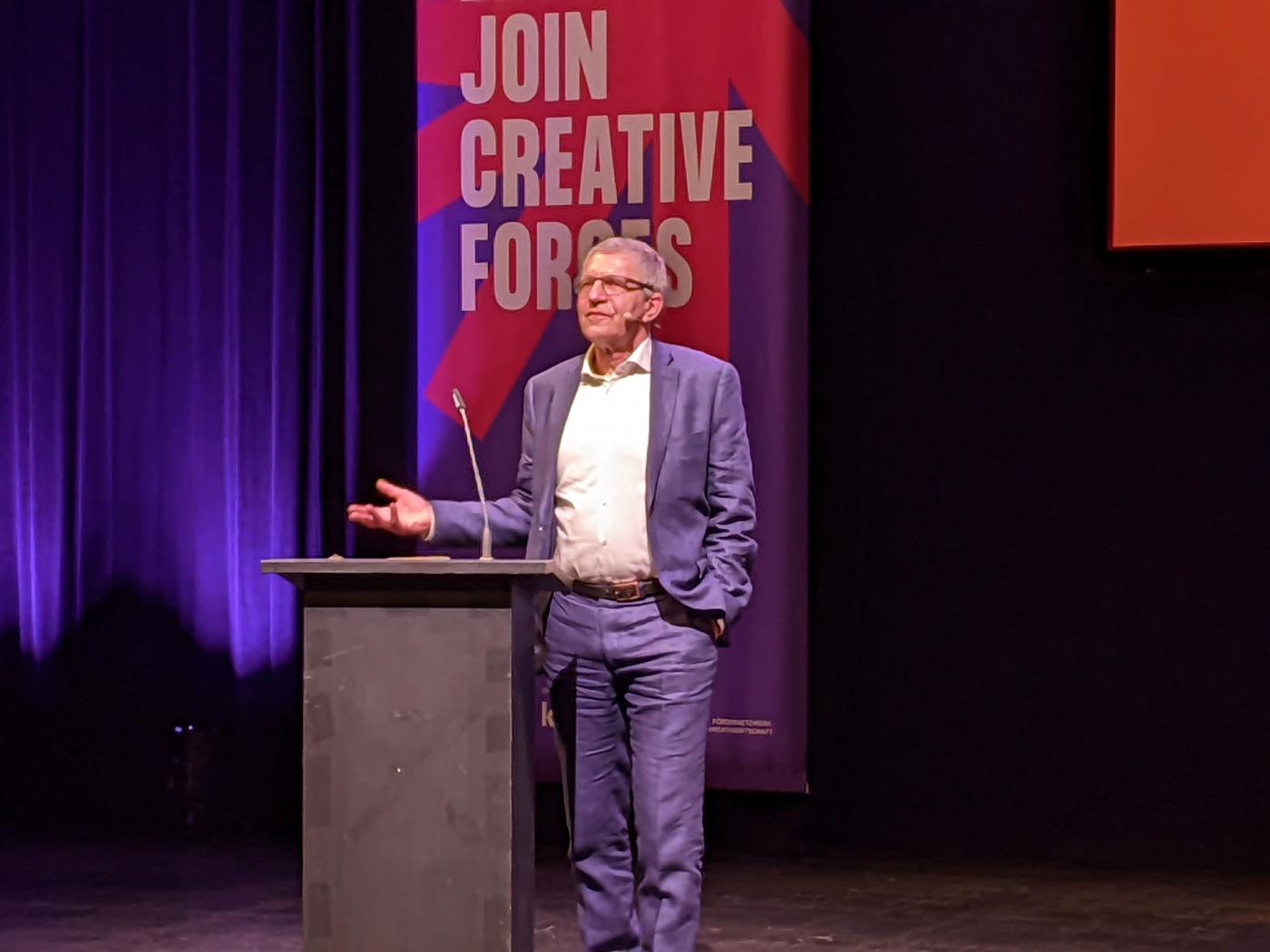The creative industries are the third largest economic sector in Germany and accounted for a turnover of EUR 175.4 billion. "There would be no information and no entertainment without the cultural and creative industries," said Rühl. Unfortunately, these outstanding industries are underestimated economically, he added. Hopes are now high that the summit underway from March 6-7, 2024 can help alter the situation. Around 850 representatives of commerce, science and the political sphere as well as top keynote speakers had come together for the summit in the Kulturfabrik Kampnagel organized by the Hamburg Kreativ Gesellschaft. Partners included the Coalition for Cultural and Creative Industries in Germany (k3d), and the network of public funding institutions for the cultural and creative industries (PCI) and the sponsor the Ministry of Culture and Media.
“The German Creative Economy Summit (GCES) brings together a wide variety of players to discuss what constitutes the cultural and creative industries and how to shape the future," said Egbert Rühl, Managing Director of Hamburg Kreativ Gesellschaft at the opening of the first ever conference of this kind on March 6. His remarks highlight the far-reaching impact of the cultural industries on the future of society. Rühl requested delegates to imagine a future without cars despite the juggernaut turnover of the automotive industry and its importance for Germany. Such a future is worth considering given ongoing climate change, Rühl stressed. However, a world without books, newspapers, music, films or games is unimaginable.
Clout of cultural and creative industries

CO2-neutral economy without less prosperity
Dr. Carsten Brosda, Senator for Culture and Media, stressed: "The cultural and creative industries are catalysts of economic innovation. If we transfer creative innovation processes to other sectors, we reinforce the belief that our actions can make a difference. We are aiming for a CO2-neutral economy without sacrificing the prosperity that we are accustomed to in Germany," he added. Approaches such as Smart City or new mobility solutions exemplify a new way of thinking and will help transform society. Around 90 events highlighted the risks and opportunities of the cultural and creative industries under the theme of "Let's join creative forces". Juliane Müller, joint Managing Director of Goldmedia GmbH Strategy Consulting, addressed the cultural factor in her keynote speech, and noted: "Cultural offers makes places more attractive and give them magnetism. Rural regions are revived and attract skilled workers like the Tesla Gigafactory in Berlin-Brandenburg."

Putting best cases on stage
In a panel on the role of creativity in innovation, Nicola Bramkamp, founder of the Hamburg-based Save the World initiative, highlighted the transformative power of culture. Bramkamp, who is also a dramaturg, has staged best cases for solving global future issues in her roadshow. "That could be a butcher who develops meat-free products or a farmer who has converted to wind energy. The energy now comes from the dyke not, not the sheikh," said Bramkamp. The Save the World initiative brings together artists, scientists and experts and presents knowledge in an unusual and emotional way to reach the widest possible audience. Similar approaches were presented during a panel on the role of games and VR on heath in future. The discussion centered on serious games and how knowledge and information are communicated playfully.

Does gaming save lives?
"Gamification is the application of gaming principles in a non-gaming context," according to Johannes Heering, joint founder of Ergofox GmbH. The Hamburg-based eHealth start-up specializes in body tracking applications. Later, Dr. Aline Weis, Project Manager Heidelberg University's transfer agency, presented games that encourage children to brush their teeth regularly.
One enlightened speaker, Maximilian Schmierer, Managing Director of the b.Rex digital agency, donned a VR headset, for his talk entitled "Does gaming save lives?". The agency has created virtual experiences for Fresenius Medical Care and developed an app to teach medical personnel how to use an ECMO device or artificial lung. "The device was often used as a last resort during the pandemic and medical professionals had to learn how to use it from scratch." This particular virtual training method may have saved lives already.
ys/sb/pb

Sources and further information
More
Similar articles

Must-see Hamburg proving real tourist magnet

Hamburg more international than ever

Gamecity Hamburg celebrating 20th anniversary in 2023
